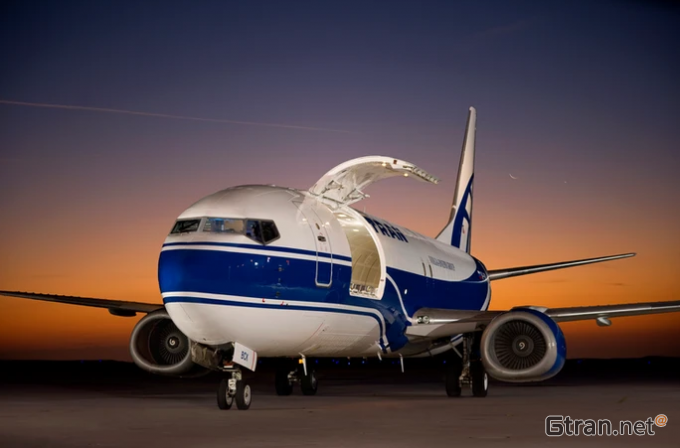Classic Boeing 737 freighters may be given an added boost in flight range, thanks to recent extended-range operations with two-engine (ETOPS) approval for STC holder Aeronautical Engineers (AEI).

The development has sparked some industry discussion on the validation for extended operation capabilities on classic B737 freighters.
AEI clarified to The Loadstar that the ETOPS approval was driven by a Boeing aircraft flight manual update that affected existing ETOPS operations. AEI obtained this validation at the request of Airwork NZ to allow its fleet to keep flying ETOPS missions.
“The classic conversion line is nearing its end and we are not expecting to see many more. We do not expect to see a large demand for additional ETOPS requests either,” said Robert Convey, president for sales and marketing at AEI.
AEI has received ETOPS 120 approval from the Federal Aviation Administration (FAA) for its 737-400/-300SF freighter conversion, which allows the freighter to fly 120-minute extended operations over water and remote regions.
Analysts at aviation advisory firm IBA don’t expect much momentum for such modifications, but recognise that if AEI is prepared to launch it, there must be some form of market demand. As Jonathan McDonald, manager – classic and cargo aircraft at IBA notes, it is 120 mins for the 300/400 and 180mins for the 737-800.
“Most of the 737-freighter flying is within two to three hour sectors, and over land, so we see this as somewhat quite niche; perhaps if someone is looking to do US west coast-Honolulu or a similar sector,” he said.
There is nothing about passenger-to-freighter (P2F) conversions that would prevent ETOPS certifications, said Mr McDonald. He added: “However, the conversion centre needs to know that the intent is for the aircraft to be operated ETOPS once converted, so they don’t downgrade the ETOPS maintenance status of the aircraft if it is already ETOPS compliant. If it is not ETOPS compliant then the component status needs upgrading to ensure ETOPS component compliance during the conversion process.”
Adam Guthorn, managing director at Alton Aviation Consultancy agreed that there was nothing inherent about the conversion process that would prevent ETOPS certification. He said the most important aspect of ETOPS certification is the established reliability of the engine. Given that all major twin-engine aircraft with P2F programmes have ETOPS approval for passenger variants, the reliability data already exists and it would be a matter of the conversion programme investing in the ETOPS certification process for the freighter variant, as AEI recently did.
ETOPS approval can vastly improve the operational flexibility of an airline and is a requirement to operate certain routes. The 737-300/400 conversion programmes are likely to naturally sunset in the coming years, but the tremendous demand for the new 737-800 and A321ceo P2Fs will likely lead to conversion programme owners (STC holders) to seek ETOPS approval to enhance the value proposition of their product, explained Mr Guthorn.
The key factor in ETOPS certification is the flexibility allowing better routing, which results in lower operating costs, potentially better asset utilisation and allowing access to remote outposts that may not be accessible without ETOPS approval, he added.
AEI believes the latest ETOPS approval for its 737-400SF and 737-300SF freighters will open additional markets for operators and provide them with additional flexibility.


